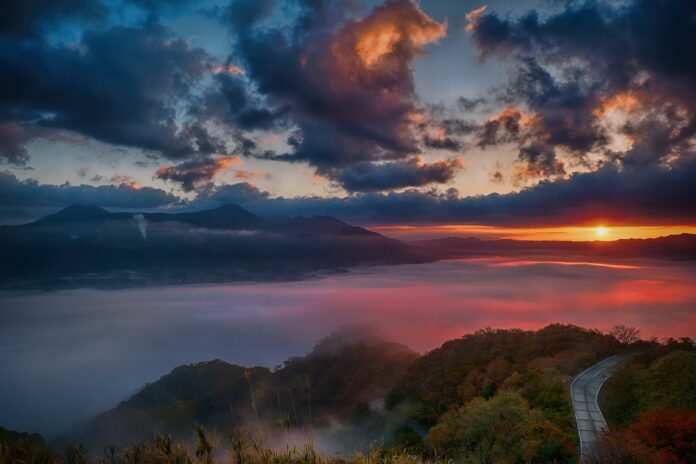The Japan Sea, also known as the East Sea, is a body of water bordered by Japan, Russia, North Korea, and South Korea. It’s known for its rich marine life, beautiful coastlines, and important shipping routes.
The sea plays a crucial role in the climate and economy of the surrounding regions. With its deep waters and unique currents, the Japan Sea is a fascinating and vital part of the Pacific Ocean ecosystem.
Interesting Facts About the Japan Sea
- The Japan Sea is also known as the East Sea, particularly in South Korea.
- It is bordered by Japan to the east, Russia to the north, and North and South Korea to the west.
- The sea covers an area of about 978,000 square kilometers.
- The average depth of the Japan Sea is around 1,350 meters.
- The sea reaches a maximum depth of about 3,742 meters.
- It is connected to the Pacific Ocean through several straits, including the Tsushima Strait, the Korea Strait, and the La Perouse Strait.
- The Japan Sea has a unique circular current system known as the Tsushima Current.
- This current brings warm waters from the south, influencing the climate of the surrounding regions.
- The sea experiences significant seasonal changes in temperature and salinity.
- It is known for its rich biodiversity, including numerous species of fish, crustaceans, and marine mammals.
- The Japan Sea is an important fishing ground for countries in the region.
- Major ports along the Japan Sea include Niigata and Toyama in Japan, Vladivostok in Russia, and Busan in South Korea.
- The sea is crucial for maritime trade and shipping routes.
- It is subject to disputes and differing names, particularly between Japan and Korea.
- The Japan Sea has several underwater mountain ranges, including the Yamato Bank and the Oki Bank.
- The region around the Japan Sea is prone to seismic activity and tsunamis.
- The sea has several significant islands, such as the Oki Islands and the Noto Peninsula.
- The coastal areas of the Japan Sea are known for their scenic beauty and attract many tourists.
- The sea supports a variety of marine industries, including aquaculture and seaweed farming.
- The Japan Sea plays a role in the East Asian monsoon system, affecting weather patterns.
- The sea is home to several species of whales and dolphins.
- In winter, the Japan Sea coast of Japan experiences heavy snowfall due to moist air from the sea.
- The sea has been a site of historical naval battles, such as the Battle of Tsushima in 1905.
- The Japan Sea’s ecosystem is studied for its unique cold and warm water mixing zones.
- It has several important marine protected areas to preserve its biodiversity.
- The Japan Sea faces environmental challenges, including pollution and overfishing.
- The sea’s waters are known for their clarity, making it popular for diving and underwater photography.
- The Japan Sea has several important research stations for marine science.
- Coastal regions around the Japan Sea are rich in cultural heritage and history.
- The sea’s name and territorial waters are often subjects of international diplomatic discussions.
